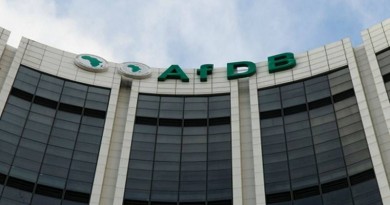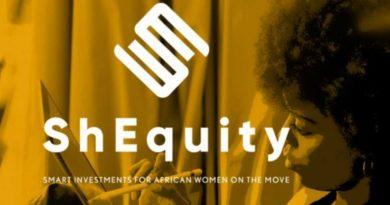The emergence of the private sector in Nigeria’s Infrastructure development
Today, we are pleased to announce the release of our Infrastructure Report, titled “The Emergence of the Private Sector.” Nigeria has faced significant underinvestment in its infrastructure over the years, creating a substantial gap. However, the private sector has stepped in to fill this void, which aligns with a global trend of infrastructure funds investing in areas where governments are unable to. Nigeria is not alone in this shift, and it is crucial for private investment to continue growing and delivering long-term returns. For more information, please refer to page 2 of the report.
FX
After experiencing losses in the previous week, the exchange rate at the NAFEM window rebounded, gaining 1.54% and closing the week at N1,602.75/US$1. The parallel market also saw slight improvements, with the Naira gaining 0.62% and ending at N1,605.00/US$1. These positive developments contributed to a slight improvement in the year-to-date change in the exchange rate, moderating the fall to 43.40%.
We attribute this appreciation to increased FX inflows from crude sales and foreign portfolio investors’ purchases of securities, as reflected in the 4.57% increase in the CBN’s published gross foreign exchange reserve, which reached US$34.42bn by the end of the week.
BONDS & T-BILLS
The CBN successfully rolled over bills worth N161.49bn (US$100.76mn). The auction received significant demand, with subscriptions reaching N1.50tn (bid-to-offer: 9.27x compared to 4.92x in the previous auction). As a result, stop rates on the 91-day, 182-day, and 364-day bills all declined, with decreases of 100bps, 100bps, and 37bps, respectively. The total sales matched the amount offered.
In the secondary market for Treasury bills, buying interest led to a decline in yields last week, with the average yields decreasing by 18bps to 18.61% per annum. Across the yield spectrum, the average yield on the short and mid-end of the curve decreased by 14bps and 10bps, respectively, to 14.34% and 17.95%. However, the average yields on the long end of the yield spectrum increased by 9bps to 21.64% due to sell-offs of the Feb-25 bill.
Yields in the FGN bond market moved in the opposite direction, with average yields increasing by 39bps to 18.40% pa. This was driven by sell-offs across the yield spectrum. Specifically, average yields on the shorter end of the curve rose by 87bps to 18.00%, the mid-point gained 6bps to 18.60%, and the long-end added 21bps to 18.54%.
Looking ahead, the Central Bank of Nigeria (CBN) is expected to maintain a hawkish stance in its upcoming Monetary Policy Committee (MPC) meeting as it continues its efforts to ensure price stability. As a result, we anticipate that yields will remain elevated throughout the year.
Oil Market
In the oil market, the Brent price experienced a 3.97% increase last week, closing at US$85.34/bbl. This marks the highest level since November 6, 2023. Year-to-date, the commodity has been trading at an average price of US$80.97/bbl, which is 1.48% lower than the average price in 2023 (US$80.97/bbl).
Due to the growing demand from U.S refiners following scheduled overhauls, we expect the average price of oil this year to surpass the US$77.96/bbl assumed in Nigeria’s 2024 budget.
Equities
Last week, the local market experienced a positive trend as the All-Share Index closed at 105,085.25 points, reflecting a gain of 3.71%. This brings the year-to-date return on the index to 40.54%.
The market saw strong demand for stocks in Julius Berger Nigeria (+30.58%), Omatek Ventures (+23.08%), and MTN Nigeria (+10.31%). However, there were selloffs in Sunu Assurances Nigeria (-19.11%), Lasaco Assurance (-14.53%), and Unity Bank (-10.00%). Despite these selloffs, the market remained in the green.
Among the sector indices, the NGX Banking (+12.84%), NGX Pension (+7.59%), NGX 30 (+3.30%), NGX Insurance (+2.52%), NGX Consumer Goods (1.41%), and NGX Industrial Goods (+0.20%) indices closed positively. On the other hand, the NGX Oil and Gas (+0.11%) index slipped.
In our Infrastructure Report today, we highlight the need for increased private investment in Nigeria’s infrastructure. Government investment in infrastructure has been insufficient over the years, resulting in a significant deficit that hampers the country’s development. However, the private sector has started responding to this challenge through public-private partnerships and the establishment of private-sector infrastructure funds. This has led to improvements in gross capital formation.
This aligns with global trends as infrastructure funds continue to play a significant role in the global finance landscape. In a groundbreaking deal, Blackrock, the world’s largest fund manager, has agreed to acquire Global Infrastructure Partners for a staggering US$ 12.5 billion, highlighting the growing importance of these funds.
Infrastructure funds have a crucial role in providing institutional investors with long-term returns that are not correlated to public markets. In fact, they often offer superior returns and lower volatility compared to public markets. In Nigeria, we observe that infrastructure companies issue bonds at a substantial yield premium to Federal Government of Nigeria bonds.
Investing in infrastructure presents a valuable opportunity for investors. We anticipate that it will become a prominent asset class in Nigeria, with public-private partnerships and private-sector investments stepping in to meet the demand that the government alone cannot fulfill.
In terms of our Model Equity Portfolio, it experienced a 3.42% increase last week, slightly underperforming the NGX All-Share Index by 29 basis points. However, year-to-date, it has delivered a remarkable return of 50.48%, outperforming the NGX All-Share Index by 994 basis points.
We were pleasantly surprised that our underperformance last week was not more significant. Our decision to be underweight in banks proved challenging as the banking sector rallied by 12.8%. Fortunately, our notional positions in certain banks that experienced even greater rallies helped mitigate the impact. Additionally, our overweight position in MTN Nigeria proved beneficial once again. We also took a position in Transcorp Power, which saw a slight rally.
Since the end of January, our underweight position in banks has yielded a positive difference of 46 basis points, although it is relatively marginal considering the potential gains. To rebalance our portfolio, we will make notional purchases of bank stocks to bring the overall bank sector weight to a neutral position this week. We will also adjust our tactical overweight in MTN Nigeria to a neutral position. Our approach will be based on measuring the neutral positions of the largest stocks by index weight. SOURCE: Coronation Asset Management




